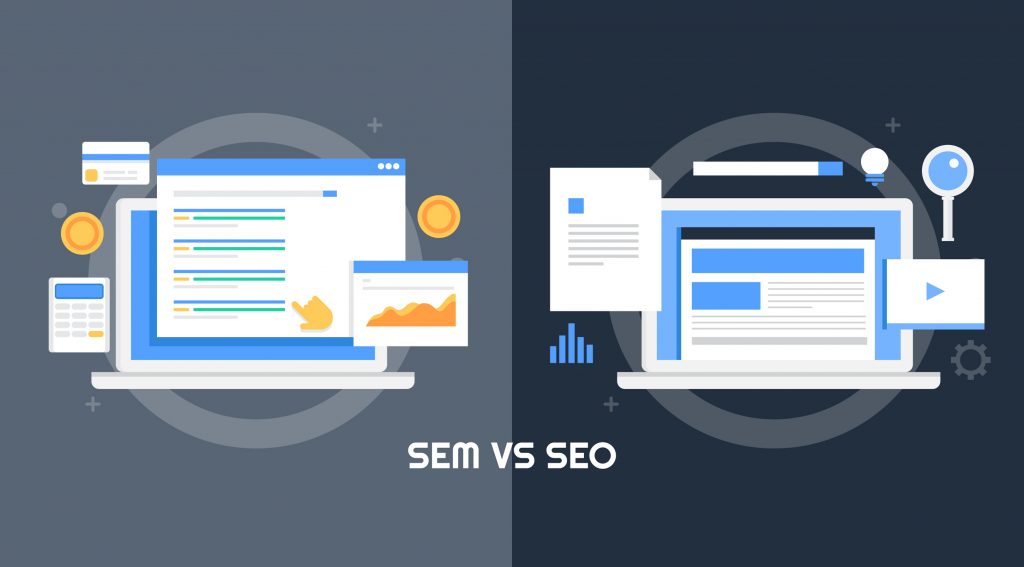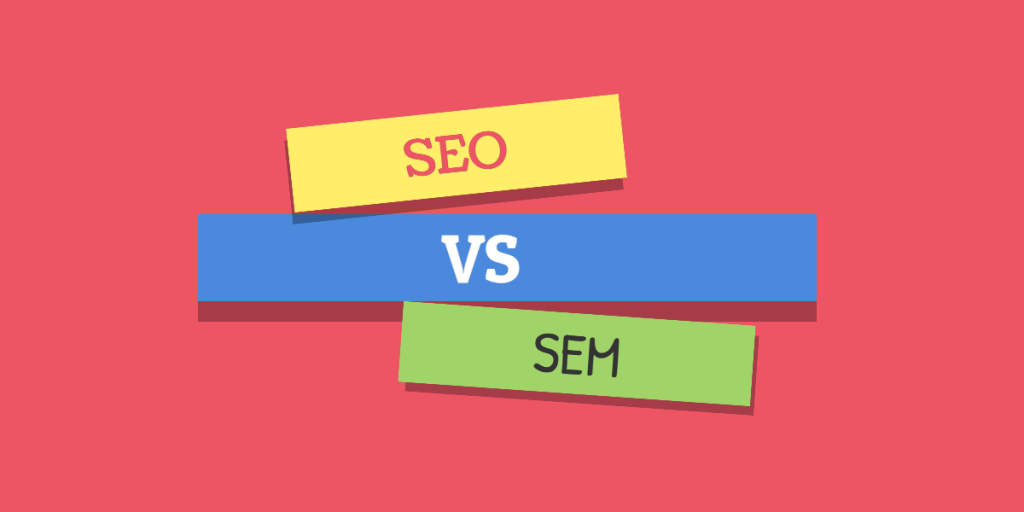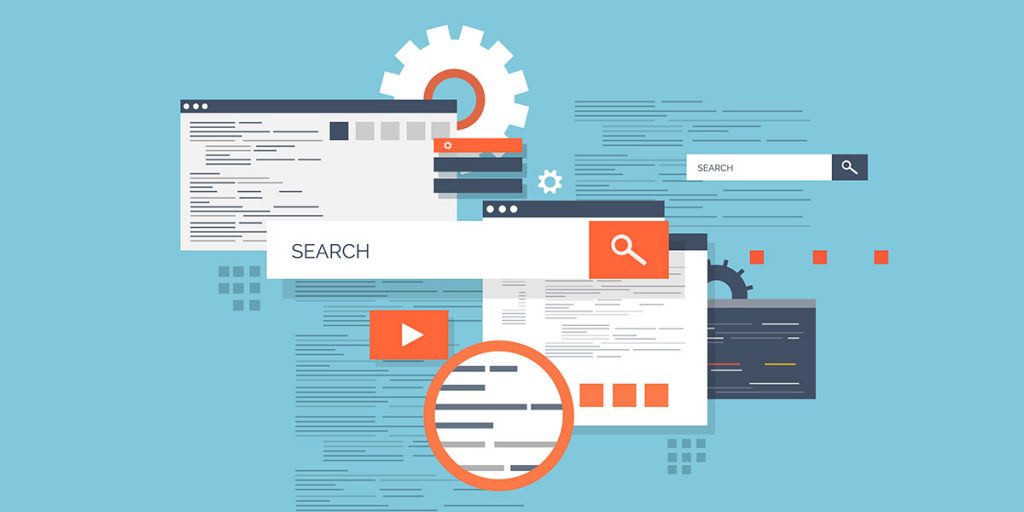By the year 2020, SEO (search engine optimization) spending in the U.S. is expected to reach approximately $80 billion. SEM (search engine marketing) spending is on the rise, too. In 2018, U.S. businesses spent 19.2 percent more ($48.4 billion) than they did in 2017.
Clearly, businesses are taking their online marketing very seriously.
Are you looking to step up your SEO or SEM game? Are you unsure of which one deserves more of your attention and marketing budget?
Read on to learn everything you need to know about the differences and similarities between SEO vs SEM. You’ll also learn which one you ought to prioritize and some tips on how you can improve your strategy.
What is SEO?
SEO is short for search engine optimization. It’s all about helping people find their way to your website in an organic way.
There are lots of different SEO tactics that businesses use to boost their search engine rankings and get more traffic to their sites, including the following:
- Keyword research and optimization
- Content creation
- Technical improvements (faster page load times, better usability, etc.)
- Link building
- Guest posting
A good SEO strategy combines all of these approaches to make a business’s website easier to find and create a better user experience.
Benefits of SEO
There are a lot of benefits that accompany a strong SEO strategy.
For example, SEO helps to increase brand awareness. People who find their way to your site in an organic way and end up making a purchase are more likely to remain long-term customers, too.
SEO is less expensive, too. There are a lot of effective ways that you can optimize your site without spending a dime.
Drawbacks of SEO
At the same time, SEO has its drawbacks as well. It takes longer for businesses to see the results of their SEO-related efforts.
It can also be more difficult for them to monitor their results and get a clear understanding of what is and isn’t working, especially when it comes to keeping track of a long list of search terms and target keywords.
SEO also requires some technical expertise and may have a steeper learning curve for less tech-savvy individuals.
What is SEM?
SEM is short for search engine marketing. It’s also sometimes referred to as pay-per-click marketing or paid search.
As these alternative names suggest, SEM is all about using paid tactics to help grow your audience and bring more traffic to your website.
Some tactics often used in search engine marketing include things like bidding on certain keywords and paying for banner ads and social media advertising.
Benefits of SEM
With SEM, you also get to boost brand awareness, and you can bring people to your site much sooner than if you were to rely on SEO alone.
SEM makes it easier for you to target specific people who are more inclined to purchase products or services from your business, too.
This helps to make up for the advantage that organic traffic sometimes has overpaid traffic when it comes to longevity.
Drawbacks of SEM
Since SEM requires you to pay for ad space and bid on keywords, it does cost more than SEO. This can make it a bit of turn-off for businesses that are working with a limited budget.
The results you get from search engine marketing tend to not last very long, either. Because of this, you have to continue putting money into your strategy in order to continue seeing improvements.

SEO vs SEM: Which Should You Choose?
As you can see, both SEO and SEM each have their own strengths and weaknesses. Because of this, you don’t have to choose between them. At least not all the way.
There’s room to focus on both SEO and SEM when you’re working on growing your business and expanding your reach. That being said, sometimes, it makes sense to place more of an emphasis on one instead of the other.
Ask yourself the following questions to decide which technique requires more of your time:
How Well Do I Know My Industry?
Do you have a pretty good grasp on your target customer and what they want/need? Or, are you brand new to the industry and in need of some good market research?
If the latter is true, you’re better off making SEM a higher priority. If you already know your audience well, you may want to spend more time on SEO instead.
How Long Is the Average Buying Cycle?
Think about how long the average buying cycle is for your target customer, too.
Do they tend to buy things within a short period of time after they start searching for them? Are they the type of spend weeks or even months researching before they make a decision?
Because SEO results tend to be longer-lasting, an emphasis on SEO may pay off if your customers’ buying cycles are on the longer side. For customers who make a purchase soon after they begin their search, though, SEM can pay off.
What’s the Average Cost-Per-Click?
Figure out the average cost-per-click for business in your industry as well.
If the average cost is relatively low, it may be worth it for you to spend some more time improving your SEM strategy. If the cost is high, though, you can save money and still see results by working on SEO.

How Old Is My Business?
Is your business brand new? Do you have a limited online presence? If this is the case, SEM can help to give you an initial boost and make it easier for you to build your brand.
If your business has been around for a long time and you have a larger audience, you’ll likely see better results from making SEO a bit more of a priority.
What’s the Status of My Website SEO?
Consider your website’s current SEO status, too.
If you’re satisfied with what you’ve done as far as SEO goes and feel that it’s working for you, now might be a good time to dedicate more time and energy to SEM. However, if you haven’t done any basic work as far as SEO goes, it might better for you to focus on that first before diving into the SEM world.
How to Use SEO and SEM Together
You may decide to place more of a focus on either SEO or SEM for the time being.
That doesn’t mean your focus has to stay there indefinitely, though. In fact, you can get more bang for your buck by improving both your SEO and SEM strategies, rather than placing all of your eggs in one basket.
The following tips will help you maximize these techniques and create a more unified online marketing approach:
Find Overlap Opportunities
Start by doing an honest assessment of your current SEO and SEM strategies. What have you been doing in each arena to grow your audience and bring more people to your website?
While you’re analyzing both of these strategies, look for gaps and places where there is room for natural overlap. For example, look for keywords or phrases that tend to perform well in both paid ads and in organic search channels.
Once you identify these keywords and phrases, you may want to spend more time optimizing content using them to help increase your overall online impact.
Continue Monitoring Progress
Once you’ve made some changes and found the keywords and phrases that you want to hone in on, it’s important to monitor the progress of your strategy. Pay careful attention to how your site is performing.
It helps to monitor the pay-per-click percentage, too. This will help you gain more insight into which keywords and phrases work best and are worth continuing to use.
A/B testing comes in handy here, too, especially when you’re looking at your paid search tactics. You can try two different techniques and see which one performs better between the two.

Work with Professionals
Don’t be afraid to work with professionals on this, either.
SEO and SEM can be quite tricky. That’s why the experts at SEOEXPLODE recommend working with a team of SEO and/or SEM professionals to ensure you’re making the best decisions for the long-term success of your business.
At the very least, it helps to have a professional perform an audit of your SEO or SEM strategy. That way, it’s easier to identify which issues require your immediate attention.
Learn More SEO and SEM Tricks Today
Now that you know more about the SEO vs SEM debate, it might be time for you to make some adjustments to your online marketing strategy.
Are you going to pay more attention to SEO or SEM? How are you going to improve your strategy so that both of these techniques can work together in a more effective way?
Keep the information in this post in mind and you’ll have a much easier time deciding where to place your focus.
